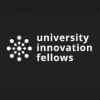news
Four BME Students Named University Innovation Fellows
Primary tabs
Four biomedical engineering students are new members of the University Innovation Fellows (UIF) program, which trains and encourages students to be better leaders and bring new opportunities, creativity, and entrepreneurship to their campuses.
Julie Leonard-Duke, Monali Shah, Fang Shi, and Jason Weis are now a part of this global initiative. Run by Stanford University’s Hasso Plattner Institute of Design, the UIF program “empowers students to become agents of change at their schools,” according to a press release.
The general goal of the Georgia Tech Fellows is to analyze the environment on campus and search for the ways to educate their peers about creativity, design, and innovation. Students at other schools have created student innovation spaces, hosted events to build experience, and even created new courses.
Leonard-Duke, Shah, Shi, and Weis have recognized that Georgia Tech’s programs such as the Inventure Prize and the Create-X program are widely known and utilized, they are largely focused on solving sponsored problems that are set before them. The Fellows know that design-based thinking is extremely important, and want to bring a project-based-learning style class to campus that encourages students to find their own problems.
"We hope to develop a vertically integrated program that can place freshmen students in a specific project that they can continue throughout their years at Tech," Shah (left) said. "This would be similar to an extended version of a Senior Design Capstone project."
It took them a while to get there, though. They’ve already poured many hours of work into coming up with a way to improve life and education at Georgia Tech.
"I think that understanding and going through the design thinking process is something that every engineer should do. We found that Georgia Tech students are really good at solving problems, but not as accustomed to finding their own problems to solve," Weis (left) said.
The first thing that students do as newly appointed Fellows is participate in a six-week online training program that introduces them to design thinking, investigation of the campus ecosystem, and the Lean Methodology, a scientific approach to quickly creating an effective startup.
"Although the training was online, it also involved a lot of work in person because we had to interact with students and faculty here at Tech," Shi said. "It was a great way to learn more about Tech's entrepreneurial landscape and it was a really good experience overall."
After they finish their training, all students accepted into the UIF program in the last year will travel to California for the annual Silicon Valley Meetup. Here, they will meet students from all over the world, as well as confer with industry professionals and leaders from companies such as Google, Microsoft, and Adobe.
The four Fellows at Georgia Tech compose what the program calls a “Leadership Circle,” and they were paired with Joseph Le Doux, an associate professor in the Coulter Department of Biomedical Engineering.
The students and Le Doux came together through happy circumstance; he mentioned the opportunity to apply for UIF during a workshop he held last semester called “Create the Next in BME,” which was intended to generate ideas about the future of BME education.
“Four students requested to be involved and the rest is history!” Le Doux said.
He thinks that the students have some bright ideas to implement in the BME department, which he will be in the perfect position to help pilot as associate chair for undergraduate learning and experience.
“Ultimately, of course, they will want to propose changes that will impact all students at Tech, not just BMEs,” Le Doux said. “They are excited to bring some of those ideas to life.”
Last year, Georgia Tech became part of the KEEN Network, a collaboration of hundreds of undergraduate engineering programs that works to cultivate an entrepreneurial mindset in students and faculty. It is through this program that Georgia Tech’s four students will receive funding to travel to the Silicon Valley Meetup and begin to implement their ideas.
"We are still working on finalizing some of the details right now, but hopefully we build a class that connects Georgia Tech, the city of Atlanta, and the design thinking process so that Tech students will graduate as more holistic engineers, better prepared to start their careers or enter graduate school," said Weis.
Twice a year, UIF selects members to join its ranks of what is now around a thousand students. This spring, 224 students were named Fellows, and they come from 58 institutions in seven different countries.
In addition to the meetup, members of UIF are provided with mentors, a network of peers, and regular conferences. They collaborate with their faculty members throughout the year and meet often with deans, advisors, and other higher-ups in their own school’s administration in order to get things started.
By Polly Ouellette
Status
- Workflow status: Published
- Created by: Walter Rich
- Created: 03/01/2017
- Modified By: Walter Rich
- Modified: 03/01/2017
Keywords

